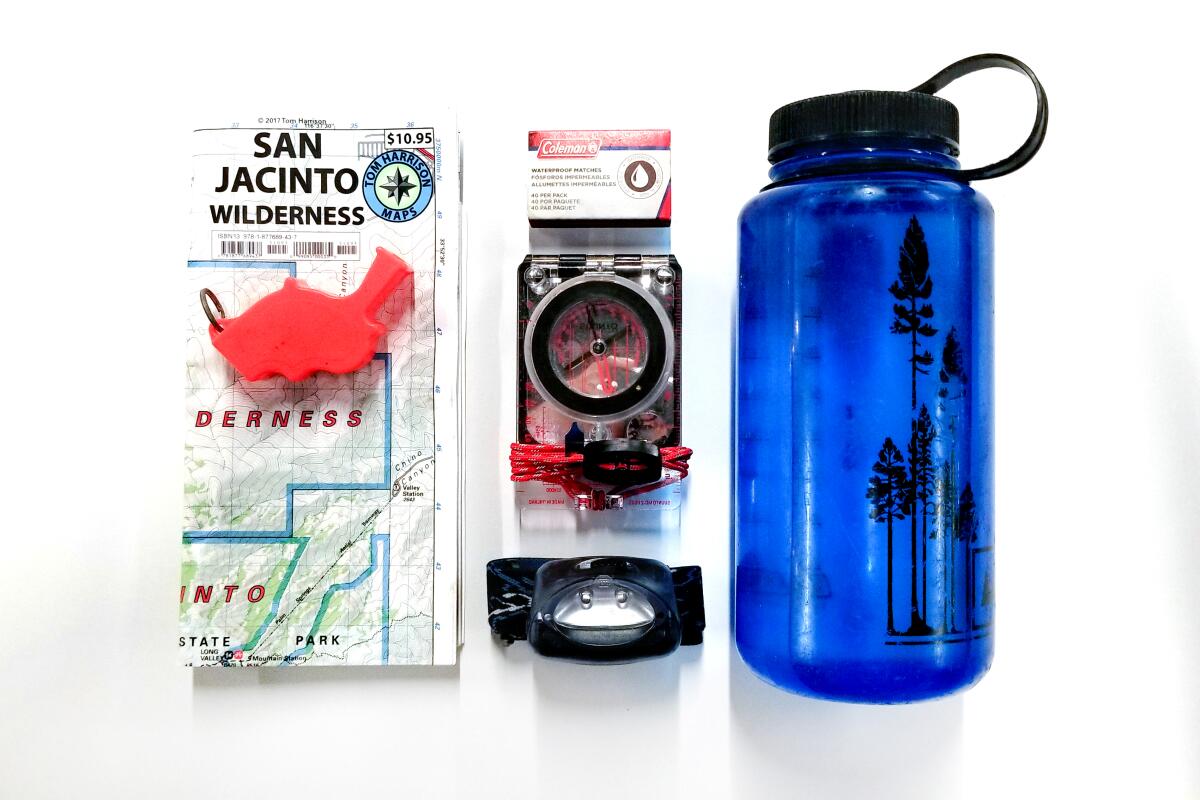The 10 essentials every hiker should carry

- Share via
What you carry in your backpack could save your life. That’s the thinking behind the 10 Essentials, an ever-evolving list of items created by the mountaineering community to keep you safe when the unexpected happens. “These items are necessary — essential — to be able to respond to an emergency and/or to safely get you through an unexpected night outside,” the Sierra Club’s Angeles Chapter website says.
1. Navigation: Bring a map and compass, and know how to use them. You can take a class, such as the local Sierra Club’s intensive 10-week Wilderness Travel Course, which includes navigation and other life-saving skills ($395 to $430, class instruction plus field trips; wildernesstravelcourse.org). REI (rei.com) and A16 Outfitters (adventure16.com) lead classes on navigation and other wilderness skill-building.
2. Illumination: Bring a flashlight or headlamp, with extra batteries and a fresh bulb.
3. Sun protection: Sunscreen and sunglasses are a must, particularly if you’re at high elevation.
4. Nutrition: Pack a lunch and extra food just in case.
5. Hydration: Same goes for bringing extra water. Don’t worry about your pack getting a little heavier.
6. Insulation: Bring extra clothes, maybe a fleece, down or rain jacket. Even a lightweight large garbage bag can keep you warm in a pinch.
7. Fire: Carry a fire starter and matches. They aren’t recommended to create a signal fire in Southern California or other fire-prone areas. They could, however, save your life if you are on a winter hike.
8. Emergency shelter: This can be anything from an emergency blanket to a full-on bivy tent.
9. Repair kit and tools: Bring along a knife, duct tape, multitool, things that could come in handy if you need to repair a boot or your backpack.
10. First-aid kit: You can buy a ready-made kit or make your own.
One other item to consider from the electronics world: personal locator beacons or satellite communication devices, which can send an SOS signal from places where cellphones don’t get service. Check out a comparison of two devices at REI.com.
More to Read
Sign up for The Wild
We’ll help you find the best places to hike, bike and run, as well as the perfect silent spots for meditation and yoga.
You may occasionally receive promotional content from the Los Angeles Times.











